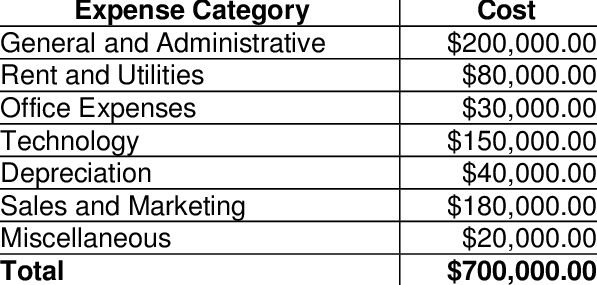
Business leaders are excited about generative AI (gen AI) and its potential to increase the efficiency and effectiveness of corporate functions such as finance. A May 2023 survey of around 75 CFOs at large organizations found that almost a quarter (22 percent) were actively investigating uses for gen AI within finance, while another 4 percent were pursuing pilots of the technology. The Deloitte AI Institute helps organizations transform through cutting-edge AI insights and innovation by bringing together the brightest minds in AI services. In a recent Harris Poll of workers, about half do not trust the technology.3 Finance leaders should consider change management carefully, leaning into the idea that generative AI can support our lives, transforming from an enabler of our work to a potential co-pilot. 2023 was a game-changing year for business, with an explosion of interest in generative artificial intelligence.
Our Services
AI’s ability to rapidly and comprehensively read and correlate data combined with blockchain’s digital recording capabilities allows for more transparency and enhanced security in finance. AI models executed on a blockchain can be used to execute payments or stock trades, resolve disputes or organize large datasets. Vectra offers an AI-powered cyber-threat detection platform, which automates threat detection, reveals hidden attackers specifically targeting financial institutions, accelerates investigations after incidents and even identifies compromised information. Here are a few examples of companies using AI to learn from customers and create a better banking experience. AlphaSense is valuable to a variety of financial professionals, organizations and companies — and is especially helpful for brokers.
How to Use Artificial Intelligence in Your Portfolio
By establishing oversight and clear rules regarding its application, AI can continue to evolve as a trusted, powerful tool in the financial industry. Trim is a money-saving assistant that connects to user accounts and analyzes spending. The smart app can cancel money-wasting subscriptions, find better options for services like insurance, and even negotiate bills. Trim has saved more than $20 million for its users, according to a 2021 Finance Buzz article. Time is money in the finance world, but risk can be deadly if not given the proper attention. Trading at an over 20 times forward price to sales (P/S) multiple, shares of SoundHound are not cheap.

Recent Finance Articles
However, the company has been growing its revenue rapidly, and it has built up a large backlog of business. Given McDonald’s recent deal with Google Cloud, SoundHound likely isn’t considered the favorite to win the deal, but if it does, it would help validate the company as the leader in the voice AI space, and the stock would certainly pop on the news. The fact that McDonald’s isn’t rushing into a new deal right away and looking to explore alternatives is thus good news, and SoundHound will likely get a chance to show off its technology to the fast-food giant.
Applications: How AI can

Exposure modeling involves estimating the potential losses a firm may experience under different market conditions, such as changes in interest rates, credit defaults, or market volatility. Optimizing strategies using instruments like equity derivatives and interest-rate swaps may allow institutions to optimize portfolios and offer better prices to customers. DataRobot provides machine learning software for data scientists, business analysts, software engineers, executives and IT professionals. DataRobot helps financial institutions and businesses quickly build accurate predictive models that inform decision making around issues like fraudulent credit card transactions, digital wealth management, direct marketing, blockchain, lending and more. Alternative lending firms use DataRobot’s software to make more accurate underwriting decisions by predicting which customers have a higher likelihood of default. As AI continues to shape the financial services landscape, it’s crucial that finance companies rapidly invest in AI innovation.
Get the latest updates fromMIT Technology Review
For instance, Chen et al. (2013) evaluate real estate investment returns by forecasting the REIT index; they show that the industrial production index, the lending rate, the dividend yield and the stock index influence real estate investments. All the forecasting techniques adopted (i.e. supervised machine learning and ANNs) outperform linear models in terms of efficiency and precision. Canoe ensures that alternate investments data, like documents on venture capital, art and antiques, hedge funds and commodities, can be collected and extracted efficiently. The company’s platform uses natural language processing, machine learning and meta-data analysis to verify and categorize a customer’s alternate investment documentation. Yet another good example is the Bank of England (BoE) employing AI in credit risk management in the areas of pricing and underwriting of insurance policies.

Plus, AI technologies and RPA bots can handle banking workflows more accurately and efficiently than humans. A valuable research area that should be further explored concerns the incorporation of text-based input data, such as tweets, blogs, and comments, for option price prediction (Jang and Lee 2019). Since derivative pricing is an utterly complicated task, Chen and Wan (2021) suggest studying advanced AI designs that minimise computational costs. Funahashi (2020) recognises a typical human learning process (i.e. recognition by differences) and applies it to the model, significantly simplifying the pricing problem. In the light of these considerations, prospective research may also investigate other human learning and reasoning paths that can improve AI reasoning skills.
Smart AI can improve the efficiency of financial services, support growth, and reduce costs. The efficiency is achieved through streamlining credit card and loan approval processes, using RPA for running repetitive tasks, detecting cybersecurity attacks, and more. Derivative Path’s platform helps financial organizations control their derivative portfolios. what are different types of ledgers The company’s cloud-based platform, Derivative Edge, features automated tasks and processes, customizable workflows and sales opportunity management. There are also specific features based on portfolio specifics — for example, organizations using the platform for loan management can expect lender reporting, lender approvals and configurable dashboards.
- With its ability to process vast amounts of data and quickly produce novel content, generative AI holds a promise for progressive disruptions we cannot yet anticipate.
- The aim of this study is to provide a comprehensive overview of the existing research on this topic and to identify which research directions need further investigation.
- By establishing oversight and clear rules regarding its application, AI can continue to evolve as a trusted, powerful tool in the financial industry.
- Over the past two decades, artificial intelligence (AI) has experienced rapid development and is being used in a wide range of sectors and activities, including finance.
- The ability to trade markets in near-instantaneous time, and strong computing power, has resulted in brokerage companies providing customers with very sophisticated order entry tools that allow computers to monitor trade entry and exit.
This suggests that global financial crises or unexpected financial turmoil will be likely to be anticipated and prevented. Artificial intelligence in finance refers to the application of a set of technologies, particularly machine learning algorithms, in the finance industry. This fintech enables financial services organizations to improve the efficiency, accuracy and speed of such tasks as data analytics, forecasting, investment management, risk management, fraud detection, customer service and more. AI is modernizing the financial industry by automating traditionally manual banking processes, enabling a better understanding of financial markets and creating ways to engage customers that mimic human intelligence and interaction. AI models execute trades with unprecedented speed and precision, taking advantage of real-time market data to unlock deeper insights and dictate where investments are made.
The search engine provides brokers and traders with access to SEC and global filings, earning call transcripts, press releases and information on both private and public companies. Socure created ID+ Platform, an identity verification system that uses machine learning and AI to analyze an applicant’s https://www.business-accounting.net/sales-journal-entry/ online, offline and social data, which helps clients meet strict KYC conditions. The system runs predictive data science on information such as email addresses, phone numbers, IP addresses and proxies to investigate whether an applicant’s information is being used legitimately.
Therefore, it is not surprising that a growing strand of literature has examined the uses, benefits and potential of AI applications in Finance. This paper aims to provide an accurate account of the state of the art, and, in doing so, it would represent a useful guide for readers interested in this topic and, above all, the starting point for future research. To this purpose, we collected a large number of articles published in journals indexed in Web of Science (WoS), and then resorted to both bibliometric analysis and content analysis. In particular, we inspected several features of the papers under study, identified the main AI applications in Finance and highlighted ten major research streams. From this extensive review, it emerges that AI can be regarded as an excellent market predictor and contributes to market stability by minimising information asymmetry and volatility; this results in profitable investing systems and accurate performance evaluations.
If you’re considering building a game-changing AI solution and don’t know where to start, talk to us. For example, the chatbot “KAI” from Mastercard uses ML algorithms and NLP, offering consumers tailored help and financial insights across numerous channels, including WhatsApp, Messenger, and SMS. After that, focussing on the more pertinent (110) articles, we checked the journals in which these studies were published. For each journal, we also report the total number of studies published in that journal. The term “Artificial intelligence” was first coined by John McCarthy in 1956 during a conference at Dartmouth College to describe “thinking machines” (Buchanan 2019).
Specifically, we identify some relevant bibliographic characteristics using the tools of bibliometric analysis. After that, focussing on a sub-sample of papers, we conduct a preliminary assessment of the selected studies through a content analysis and detect the main AI applications in Finance. Its platform finds new access points for consumer credit products like home equity https://www.quickbooks-payroll.org/ lines of credit, home improvement loans and even home buy-lease offerings for retirement. Figure Marketplace uses blockchain to host a platform for investors, startups and private companies to raise capital, manage equity and trade shares. Every day, huge quantities of digital transactions take place as users move money, pay bills, deposit checks and trade stocks online.
